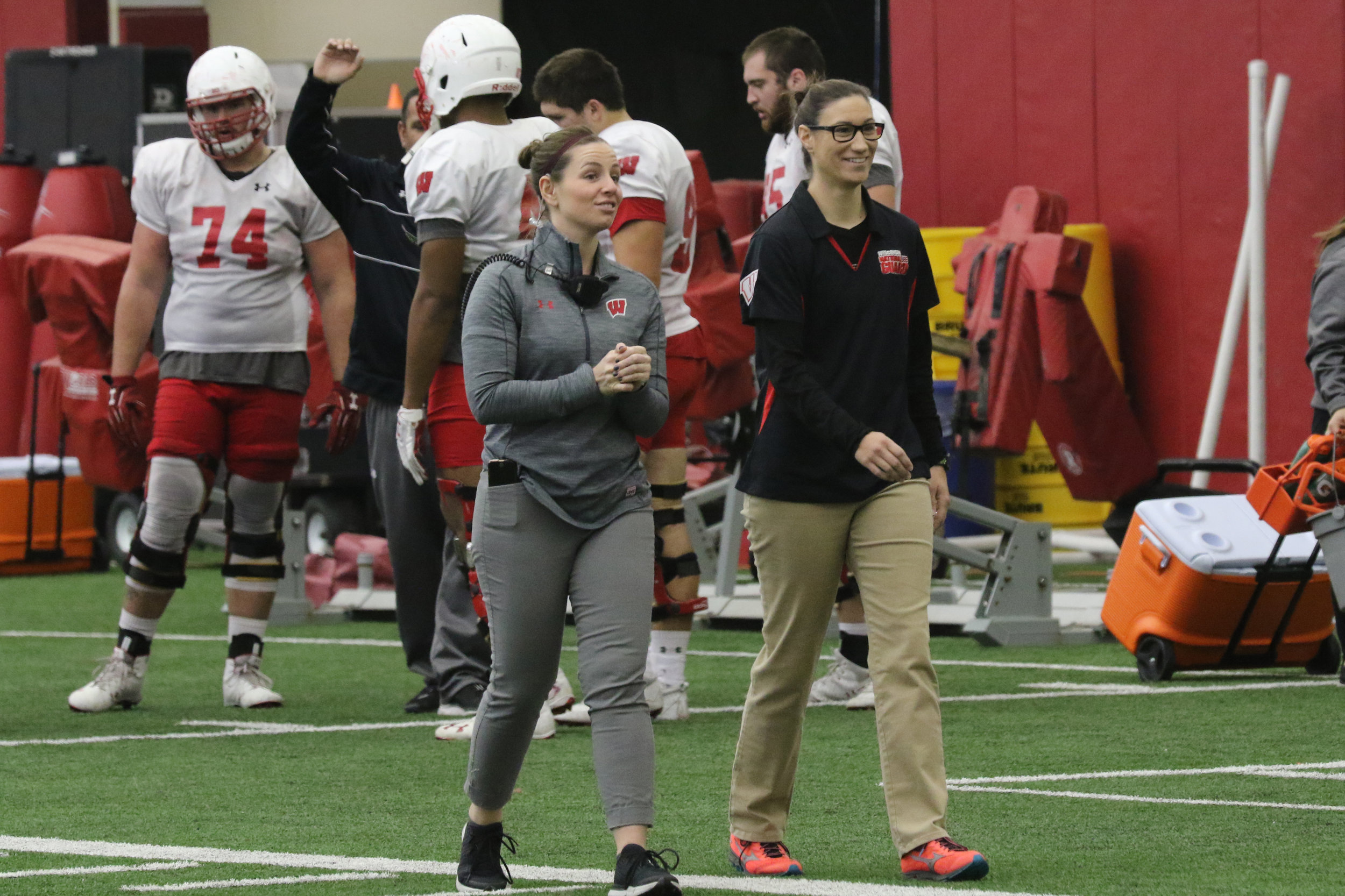Tips for Female Athletic Trainers
Sophia Arenas is a women’s basketball coach with an M.A. in Kinesiology in the San Francisco Bay Area. The article is drawn from an email interview about the challenges women face as athletic trainers and suggestions about how to overcome them.
How does a person -- any person -- become an athletic trainer?
To become a athletic trainer one would first enter a kinesiology program and obtain a bachelor’s degree with a concentration in Athletic Training. As a student, one should definitely consider a summer internship or volunteer with a team, either at your university, or even at the local community college. Such experience will teach you invaluable lessons on how to run a training program, follow injury protocol, communicate with other medical professionals, and hands on training working with athletes.
Although a masters degree is not required to pursue a career in athletic training, it is highly recommended. A master’s degree would not only further your knowledge and training, but help give a competitive edge in such a highly impacted field.
Lastly, one would need to go through a certification process required by most states. The certification process requires the completion of an accredited athletic training program, and pass a certification exam.
Are there particular obstacles that women encounter to become professional athletic trainers that men do not?
As with any woman who is entering the sports world, whether it be in coaching, administration, or athletic training there will be some obstacles. Even though, there are more and more women entering into this male dominated domain, there are still those few with the old school mentality of women not working with male athletes for the fear of them being a “distraction” to the players. There are also definitely some men who still believe that a female could not be more knowledgeable than a man in this domain. However, recent studies have suggested that this mentality is often not the overall sentiment of most professional organizations today.
Are there considerations women athletic trainers have to take into account when directing men?
While I do believe that it is important for women to be aware of the harassment that female ATs have faced, I do not believe women need to take special consideration when working with male athletes. I believe as with any other medical professional, female athletic trainers should treat players professionally and ethically. Inappropriate behavior on either the part of the AT or the athlete should be treated very seriously and handled accordingly.
I believe women in general receive harsh criticism when they display professional or assertive behavior. These qualities however, when speaking of a male are spoken of in a positive manner and display leadership. Women, who display those same qualities are often met with negative comments and often deter her from advancing in her career or to leadership positions. However, it is important for women not to let negative comments or perceptions from sharing their opinions or asserting themselves in their workplace. A woman should always remain confident in herself and her knowledge and abilities.
Will women athletic trainers always be relegated to women's sports (e.g., women's basketball, women's soccer, women's lacrosse, etc?), or will they be able to gain parity with men in men's sports?
What is most refreshing to hear, is the amount of certified female athletic trainers there are currently. According to the National Athletic Trainers' Association, about 54% of the 43,000 members of the organization are female. Many are working at the high school and collegiate level which means many young male athletes growing up in sports will have had the opportunity to be cared for by a female AT. This exposure over time will help to make the idea of a female AT in professional male sports less and less foreign. Just as society has adapted to women in the workforce, women in men’s sports, although much slower, I believe have made great advancements and will only continue to breakthrough to all aspects of sport.
What advice would you offer young women interested in becoming athletic trainers?
I would say that this is a great time to be an athletic trainer. The field is growing and there are so many more opportunities for women today. The NFL recently held their 2018 Women’s Careers in Football Forum. From this forum, 24 women were hired to NFL, collegiate or HS teams, and 32 women received first round interviews. Although, out of the 146 athletic trainers in the NFL currently, only 6 are female. More and more teams are opening up to the idea of female ATs and this will only continue to improve with females who are willing to fight and continue to break down the walls of the ‘old boys club.

